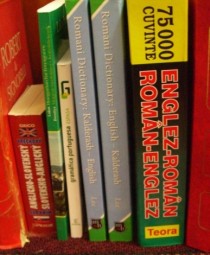Translation Romani has decided to maintain use of the word Romani in all language versions of this website, inclusively and in reference both to the language and people of all the diverse ethnic communities throughout the world, i.e. Roma, Sinti, Manuš, Calé, Romanichal, Kalé, and many others. Please read the important notes from our translators for explanations and other translations currently in use locally, nationally or regionally.
Close this box.

|
The Translation Spectrum
|
Partner and ally in trade and commerce, and in artistic, literary expression, and now on the Web, translation has been practiced since the earliest of times among and within linguistically and culturally diverse human societies all over the world.
|
|
In practice, translation has been carried out since the earliest of times among and within diverse human societies all over the world. Translation activities most likely accompanied the first acts of writing, nearly 6,000 years ago in Mesopotamia, as populations settled and economies expanded, thus prompting the need to more accurately regulate trade, commerce and administration. "Oral translation" would have emerged far earlier in time. In precise terms, oral translation is referred to by the word "interpreting", while the word "translation" implies the presence of a written text which must be read and interpreted for meaning before being rewritten. Both oral translation (interpreting) and written translation refer to the sequence of complex processes involved in understanding content in a source language and re-formulating it in a target language. Professional translation places a high value on the mastery of two or more language-cultures, and excellent writing skills in one`s native language. The practice of translation has a very long history indeed, and from time to time groups of translators have organized into "schools", notably in Baghdad (8th-10th c.) and in Toledo, Spain (13th c.). However, the formal theorizing and reflection on translation practice in a systematic way and within academic institutions is actually quite recent. As a discipline of study, "Translation Studies" emerged gradually, as a sub-disciplinary outgrowth of Linguistics. It was first formally proposed and sketched out by James S. Holmes (1972/1988), and has since developed internationally into a dynamic interdisciplinary discipline in its own right. It applies various conceptual perspectives and methodological approaches (linguistic, cultural, literary, sociological, historical, computational, psychological, etc.) to the study of translation as product and process, and examines related translation phenomena. |
Translators and terminologists occupy important positions in regions, nation-states and organizations where languages are granted official status. They are also crucial agents in the transfer of information and for standardizing specialized vocabulary in our globalizing world. An inside look at the professional profile...
Interpreters are found in the spotlight everywhere from the United Nations to local hospitals and courts. They professionally manage subject matter expertise, and do so by processing and formulating critical information orally within time constraints that can have immediate repercussions for those whom they interpret.
Translation technologies are in the public eye as never before in human history. Localized websites and software applications allow users to transact as citizens and as consumers in the languages of their choice. Machine translation assists in activities from online gaming to crisis and humanitarian intervention.
|


